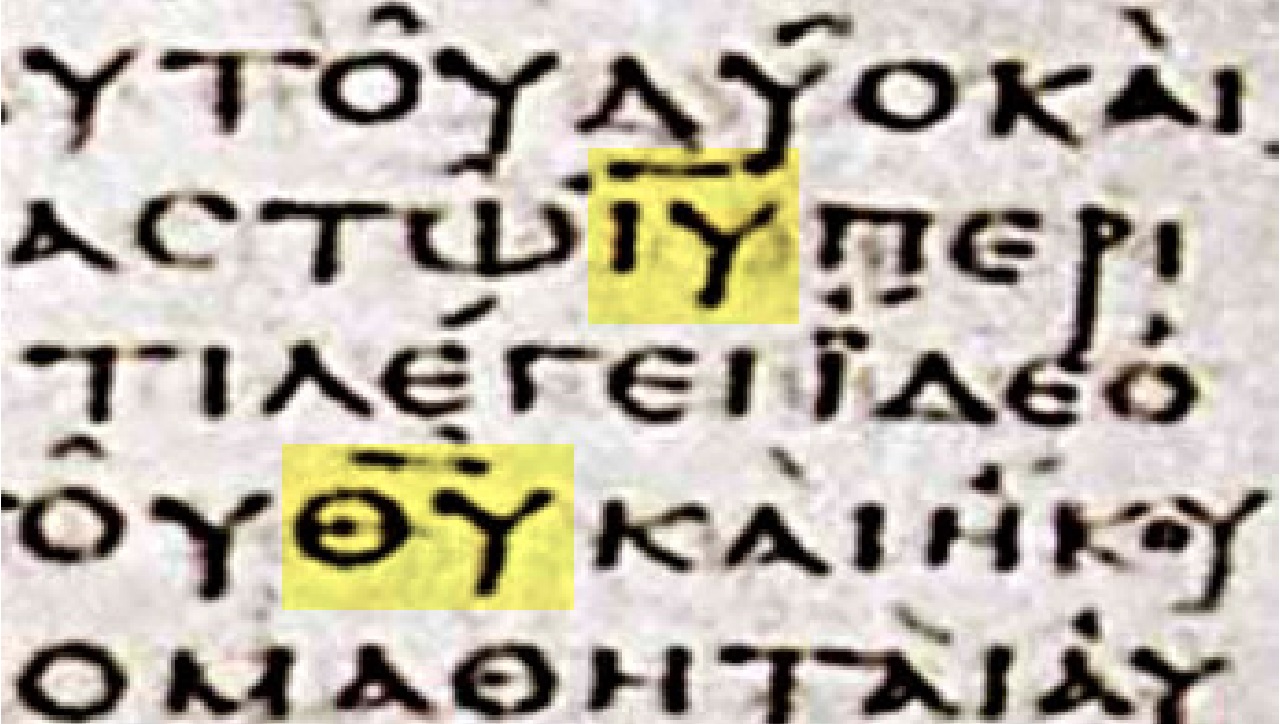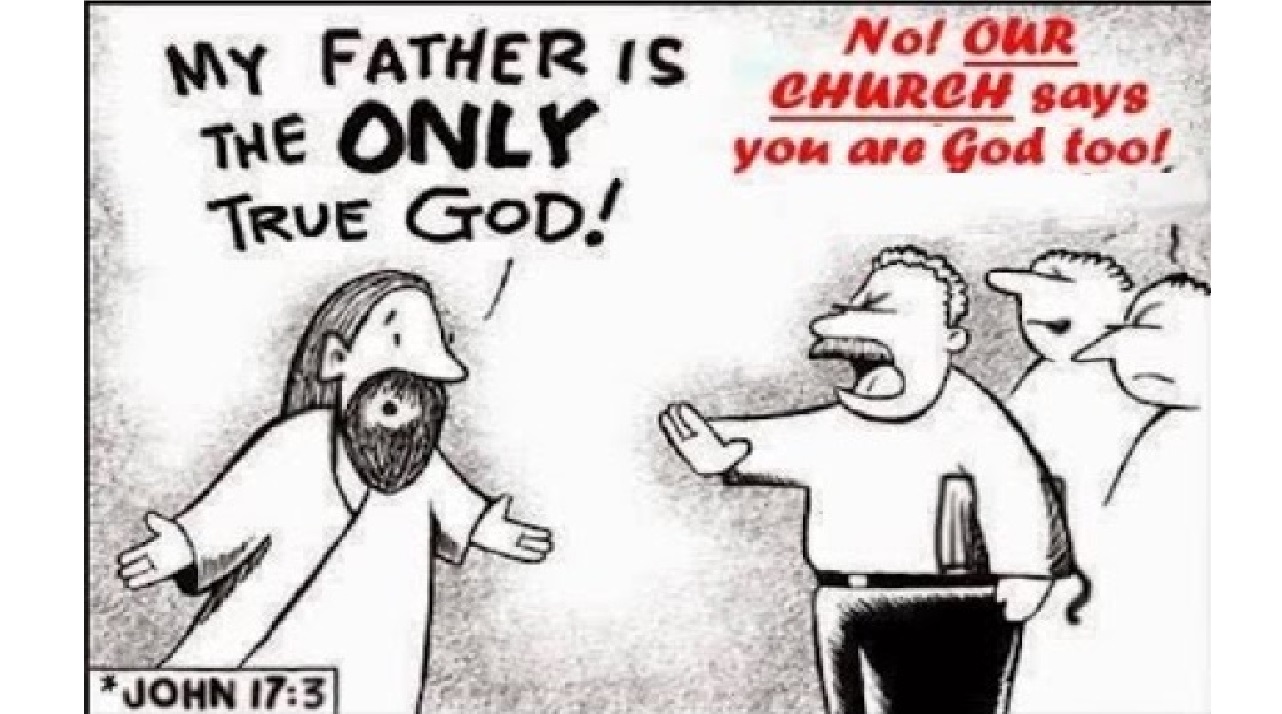
Jesus is God “proof texts”
February 22, 2019
The Only True God = The Father par excellence!
February 23, 2019The Theology of Isaac Newton’s General Scholium to the Principia

“God of Gods, and Lord of Lords“: Stephen D. Snobelen
Newton defines the phrase “God of gods” as referring univocally to “God the father…the ancient of days”—thus explicitly denying all but the most subordinationist of Trinitarian readings of this biblical expression.”[1] Citing 1 Corinthians 8.5–6 Newton is quite clear that the “God of gods,” the One God, is the Father alone, and for this reason it is wrong to “connumerate him with other Gods.” Similarly, when Newton uses the Greek term pantrocratos [almighty], we know from his manuscripts that he is referring only to the Father, not to Christ or the Holy Spirit. This is explicitly antitrinitarian, as Trinitarians of his age contended that this title was also used of Christ. Newton believed that the One True God
is o pater o pantokratos the father almighty in dominion, the first author of all things who bears a fatherly affection towards all his offspring, & reigns over them with an universal invincible irresistible dominion, & the Son is heir of all things & owes his father the duty of a son. The father is the ancient of days & hath life in himself originally essentially & independently from all eternity, & hath given the son to have life in himself John 5.26. The father hath knowledge & prescience in himself & communicates knowledge & prescience to the son, Apoc. 1.1. & 5.3, 7, 9 & Mark 13.32.
For Newton, there could be no doubt that the “one God the God of the Patriarchs” was none other than
the father who hath life in himself & hath given the Son to have life in himself, the author of life to all intelligent beings, the Almighty (or universal dominion monarch) pantokratos (that is the supreme & universal governor of the Universe, the maker of heaven & earth & (of) all things therein visible & invisible.
There is no co-equality here; the “Being [who] governs all things” is the Person of the Father alone.
There are other such clarifications. For example, Newton’s manuscripts demonstrate that he believed that the Father and Son were united in power and dominion but not in nature or essence. In one passage, he writes that his great foes in the (Trinitarian) Homoousian party “made the father & son one God by a metaphysical unity of substance,” when the Father and Son were actually one God by a Monarchical unity, an unity of Dominion.”
Newton’s specifically antitrinitarian motivation behind talk of God’s substance provides a revealing backdrop to his expressed denial in the Scholium that we can have any idea of the substance of God.” He goes on to argue that the word God relates not to the metaphysical nature of God but to his dominion….It is a relative word & has relation to us as the servants of God.” As a king and his regnant son are considered one king, so God and His Son can be called one God because of their monarchical unity, but not “upon account of their being consubstantial.” Newton then adds, with evident acerbity, that the “heathens made all their Gods of one substance & sometimes called them one God & yet were polytheists….Nothing.”
In his “Of the Church,” Newton writes, “If it be said, I & (my) father are one” [John 10.30], the Homoousians “take it in a metaphysical sense for one in substance, tho Christ interprets it of a moral unity or unanimity” (John 17.21-2). Shortly thereafter, he spelled out a revealing analogy to the misuse of the term “God”: “If a spiritual Being be called an Angel, they understand the word in an absolute & metaphysical sense for a Being of a certain species whereas the word is relative & moral, denoting a servant whom his Lord sends upon messages.” Newton’s argument thus serves as a gloss on the corrupt Trinitarian hermeneutics of both the fourth century and his own day, an abiding fixation in his private studies. It was their mistake in taking the name “God” as a consistently absolute term denoting essence and then allowing the communication of this false and metaphysical meaning to Christ, which in turn led to the introduction of the idolatrous notion that Christ was “very God.”
In his “Irenicum,” Newton states that “[w]e may give the name of Gods to other Beings as is frequently done in scripture” and goes on to write out the texts and references of biblical examples where both men and angels took on the names of God, including not only Exodus 3.2, 6, but also Exodus 4.16, Exodus 7.1, Psalms 82.6, and John 10.34-5. In this manuscript Newton brings out unambiguously what is only hinted at in the Scholium: “Angels & Princes who have power & dominion over us we may call Gods but we are to have no other gods in our worship but him who in the fourth commandment is said to have made the heaven & earth; which is the character of God the father.” Men and angels can certainly be referred to as “Gods,” but direct worship is expressly forbidden of all but the Father, Who alone is truly God.
Agreeing with Newton that only the Father was properly God, [Samuel Clarke, Scripture-Doctrine, p 296] argued in print for this position, writing that “[t]he Father (or First Person) is, absolutely speaking, the God of the Universe; the God of Abraham, Isaac and Jacob; the God of Israel; of Moses, of the Prophets and Apostles, and the God and Father of our Lord Jesus Christ” and that “[t]he Scripture, when it mentions the One God, or the Only God, always means the Supreme Person of the Father.” Marshaling evidence from Scripture and the early fathers, Clarke also asserts that the pantokratos is the Father alone. Furthermore, he comes to the same conclusion as Newton on the unity of the Father and Son, arguing that theirs is not a unity of substance but one of monarchy: the Son acts as vicegerent for the Father.
We now come to William Whiston, whose views on the Godhead were, like Clarke’s, almost indistinguishable from those of Newton, only much more vocally expressed. For Whiston, like Newton, the title “God of gods” refers specifically and uniquely to the Father. Whiston also expressed himself similarly to his mentor on the biblical term pantokratos.
[1] Newton, Yahuda MS 7.1k, fol. 2r. Newton identifies the “God of gods” exclusively as the Father in even greater detail in Keynes MS 3, p. 29.
